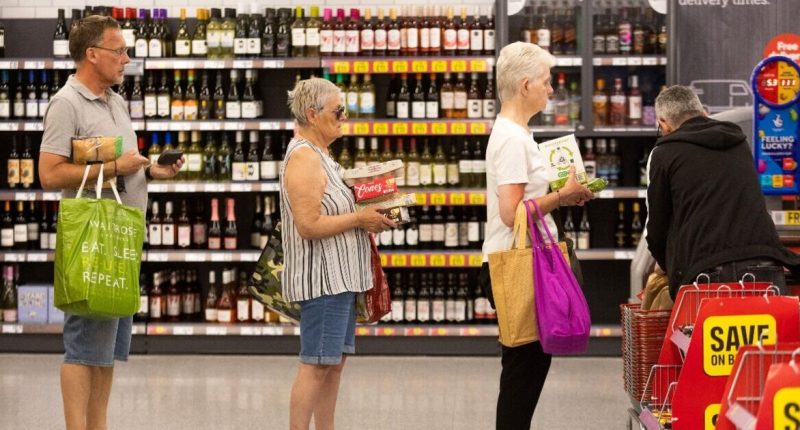Share this @internewscast.com
Weight-loss drugs look poised to have a worrying effect on UK supermarkets as total grocery sales volumes fall. Market research firm Kantar has suggested the use of so-called “skinny jabs” may partly explain the 0.4% decline – the first drop this year.
Fraser McKevitt, Head of Retail and Consumer Insight at Kantar, said supermarkets and grocery brands are entering new territory with the growing popularity of weight-loss drugs. He said four in 100 households in the UK now include at least one GLP-1 drugs. These are medications which are mainly used to treat Type 2 diabetes and weight management.
Mr McKevitt told The Times the figure is almost double the number last year, but added it is still “pretty low”. He told the same publication: “It’s definitely a trend the industry should keep an eye on as these drugs have the potential to steer choices at the till.”
A Kantar survey shows that four in five drug users said they plan to eat fewer chocolates and crisps. Almost three-quarters intend to cut back on biscuits.
GLP-1 agonists can lower blood sugar levels in people living with Type 2 diabetes and can also be prescribed to support some people with weight loss.
Recent estimates suggest about 1.5 million people in the UK are taking weight loss jabs. The mass rollout of weight loss jabs on the NHS in England started on Monday. GPs are now allowed to prescribe the drugs for the first time.
Health officials have suggested they can help to turn the tide on obesity, but have stressed they are not a silver bullet and do come with side effects.
Most side effects linked to the jabs are gastrointestinal, including nausea, constipation and diarrhoea.
The growing popularity of weight-loss jabs has sparked debate about the impact on other industries, such as food and alcohol.
Cornell University academics have examined how consumers are altering their food demand after adopting the jabs.
The researchers found that households with at least one GLP-1 user reduced grocery spending by 5.5% within six months of adoption, and higher-income households cut spending by 8.6%.
The paper found the falls were driven by decreases in the purchase of “calorie-dense, processed items”.
Researchers said: “Our findings highlight the potential for GLP-1 medications to significantly change food demand, a trend with increasingly important implications for the food industry as GLP-1 adoption continues to grow.”















